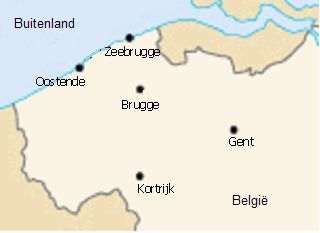
Pages
VIB, Inflammation Research Center, Unit of Molecular Signaling and Cell Death
Contact details
Traineeship proposition
Abstract
Testimony
Admin
Samenvatting eindwerk 2013-2014: Development of new calpains/cathepsins FRET-biosensor for necroptosis assessment in living cells
Flander Institute of biotechnology (VIB), more specifically the Inflammation Research Center (IRC) focuses on the study the molecular mechanisms of inflammation. The bachelor thesis was performed within the unit “molecular signaling and cell death” headed by Pr. Dr. Peter Vandenabeele, where multiple cell death pathways are investigated. Cell death is a mechanism that occurs in organisms on a regular basis. In the past only apoptosis was considered to be a mode of programmed cell death. Necrosis was considered to be an accidental form of cell death. Nowadays scientists discriminate a form of programmed necrosis, called necroptosis, which is the most studied form of regulated necrosis.
Recent studies have identified key molecular effectors involved in this program cell death process. The serine threonine receptor interacting kinases, RIPK1 and RIPK3 are examples of these effectors. Very recently, the mixed lineage kinase domain-like protein (MLKL) has been shown to be instrumental for necroptosis assessment. Bioinformatics approaches in the laboratory have identified several potential cleavage sites for calpains and cathepsins proteases on MLKL. While biochemical approaches have been undertaken in the research unit, specific MLKL antibodies are still lacking. Looking at the gain of protease biosensor such as the ones developed for caspases in the context of apoptosis, we set out to build a new FRET-based protease biosensor to reveal potential MLKL cleavage towards necroptosis assessment in living cells.
FRET (Förster Resonance Energy Transfer) is a physical phenomenon of the transfer of energy from one fluorophore (the donor) to another fluorophore (the acceptor) that can be measured using an optical device such as a microscope. Biosensors can be used to study protein activity in living cells since they convert a molecular change in the cells into an optical signal
This bachelor thesis documents the construction of a new biosensor backbone tailored for the monitoring of protease activity in living cells.
|
Tags: biotechnology cell culture |
Address
|
Technologiepark 927
9052 Zwijnaarde
Belgium |
Contacts
|
Traineeship supervisor
Sandrine Jouan-Lanhouet
|
|
Traineeship supervisor
Franck Riquet
|

